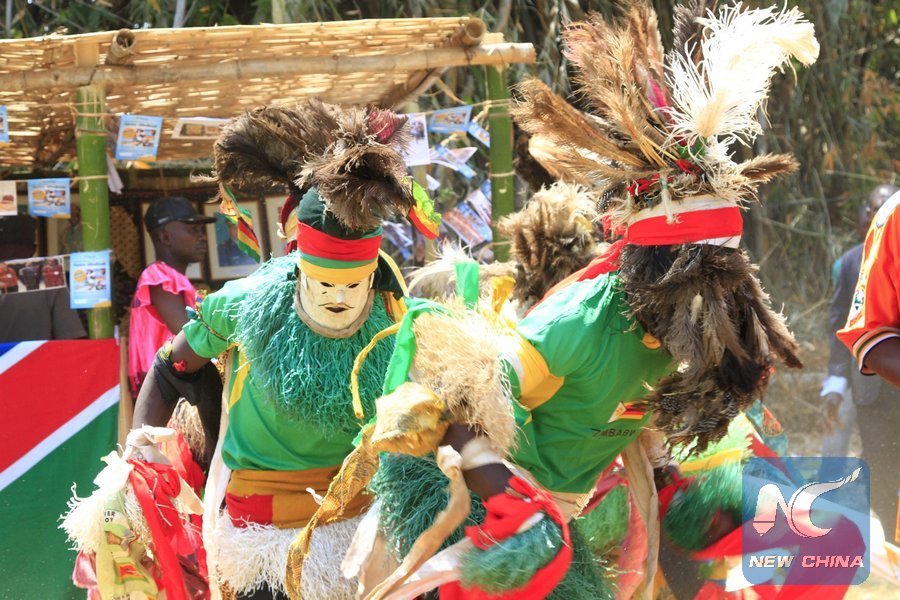
File photo taken in 2013 shows Nyau dance, or the mask dance, which was mainly performed at funerals and memorials as a way to "communicate with the dead". (Xinhua/Xu Lingui)
HARARE, Jan. 23 (Xinhua) -- Some cultural and religious practices are contributing to the spread of cholera in Zimbabwe, with the only cases reported so far this year attributed to a funeral in a mining town, authorities said.
To date, four people have died and 32 other suspected cases have been reported, two of which have been confirmed.
When an 80-year-old woman died from cholera on Jan. 8 in Chegutu, 100 km southwest of Harare, three relatives did a washout of her intestines according to religious rituals.
The three also contracted the disease and died, and the same rituals were conducted on two of them without protection, said Mashonaland West provincial medical director Wenceslaus Nyamayaro.
Minister of Health and Child Welfare David Parirenyatwa said this week that although authorities could not establish where Mungulisia had contracted cholera, all the recorded cases were linked to her funeral.
Traditionally, Zimbabweans greet each other by shaking hands -- a practice that is more pronounced during funerals when mourners console each other.
In Shona culture, paying condolences is known as kubata maoko, which literally means to hold hands.
"Let's avoid big gatherings during outbreaks such as these ones. Let's not shake hands at these gatherings or funerals," Parirenyatwa said. "In the event of death in the community due to cholera, this should be supervised by health workers."
Some people are now using clenched fists to greet each other but many still find it odd to do so and end up risking with the open palms.
Parirenyatwa said all the country's provinces have been put on high alert for cholera and active surveillance, including contact tracing in Harare and other areas of people who attended the Chegutu funerals.
He urged people to refrain from eating food at funeral gatherings, something which Zimbabweans also find hard to do because traditionally people should eat the food that is prepared at such gatherings, or else no one would eat the food they prepare if there are deaths at their own homes.
In rural areas, people slaughter cattle and goats at funerals, which are at times prepared under poor hygienic conditions, exposing mourners to diseases during times of outbreaks.
Zimbabwe still bears the scars of a serious cholera outbreak from August 2008 to July 2009, which killed at least 4,288 people.

